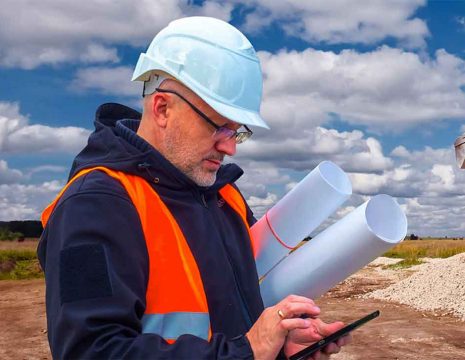In the utilities industry, critical communications are an essential component of daily operations. These communications are necessary to ensure the safety of workers, maintain reliability and efficiency of equipment, and respond effectively to emergencies. Push-to-talk (PTT) technology has emerged as a key solution in this space, providing instant communication and connectivity across teams and organizations. In this blog post, we will discuss why critical communications are so important in the utilities industry and how PTT technology is revolutionizing this space.
Why are Critical Communications essential in the utilities industry?
The utilities industry is responsible for providing essential services to millions of people around the world. This includes generating and distributing electricity, gas, water, and other vital resources. Given the critical nature of these services, it is essential that workers in this industry can communicate effectively with each other in real-time. This is particularly important in emergency situations, such as power outages, gas leaks, or water main breaks, where time is of the essence.
In addition to emergency response, critical communications are also necessary for routine operations in the utilities industry. For example, maintenance crews need to be able to communicate with each other to coordinate repairs and ensure the safety of workers. Operations staff need to be able to communicate with power plant operators to ensure that the electricity grid is operating efficiently and reliably. And management teams need to be able to communicate with field personnel to ensure that work is being completed on time and within budget.
The importance of Push-to-talk technology in the utilities industry
Push-to-talk (PTT) technology is a key solution for critical communications in the utilities industry. PTT allows workers to communicate instantly with each other at the push of a button. This is particularly useful in emergency situations, where time is of the essence and workers need to be able to communicate quickly and effectively.
PTT technology also provides connectivity across teams and organizations. This is particularly important in the utilities industry, where workers may be spread out over a wide geographic area. PTT allows workers to communicate with each other regardless of their location, improving collaboration and coordination.
PTT technology also offers a range of other benefits for the utilities industry. For example, it allows workers to communicate hands-free, which is particularly useful in situations where workers need to use their hands to perform tasks. PTT also allows workers to communicate in noisy environments, such as construction sites or power plants, where traditional forms of communication may be difficult.
Storm offers a range of communication solutions that help utility companies keep their workforce safe and connected. Here are some ways in which Storm’s solutions can benefit utility companies:
- Push-to-talk (PTT) communication: Storm’s PTT technology allows utility workers to communicate instantly with each other using their mobile devices. This means they can quickly and easily share information, coordinate their work, and respond to emergencies. PTT technology also enables utility companies to create groups and channels based on job roles or location, ensuring that workers can connect with the right people at the right time.
- Lone worker protection: Utility workers often work alone or in remote locations, which can pose safety risks. Storm’s lone worker protection feature enables workers to check in periodically with a central control room using their mobile devices. If a worker fails to check in, an alert is automatically triggered, and emergency services can be dispatched to their location.
- Location tracking: Storm’s solutions allow utility companies to track the location of their workers in real-time. This can help companies ensure that workers are safe, and can also help improve productivity by enabling companies to monitor the progress of work and allocate resources more effectively.
- Integration with other systems: Storm’s solutions can be integrated with other systems used by utility companies, such as SCADA (Supervisory Control and Data Acquisition) systems. This enables workers to access information about the status of equipment and infrastructure, helping them to carry out their work more efficiently and safely.
Storm’s solutions can help utility companies improve safety, efficiency, and productivity by keeping their workforce connected and informed. If you would like to learn more, please drop us an email at hello@storm.co.uk



